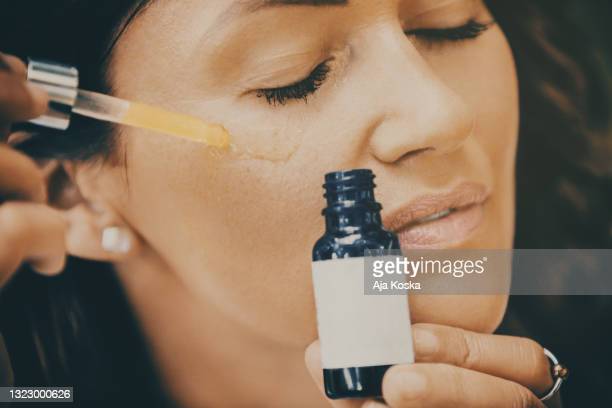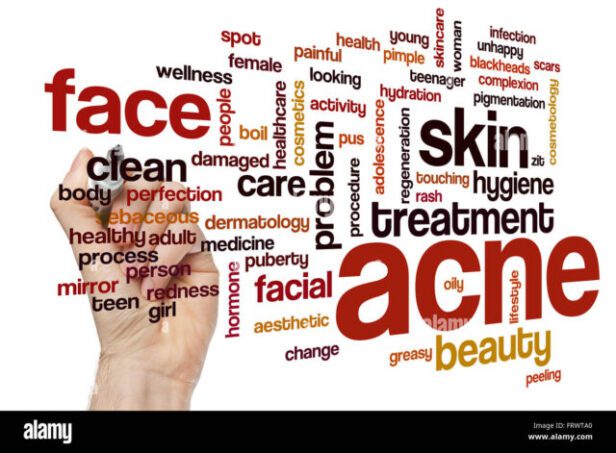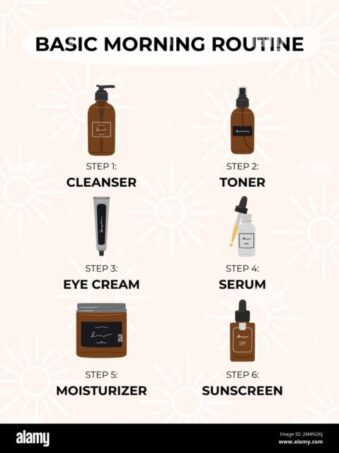Retinol is a popular ingredient in skincare products that has become even more popular recently due to its numerous benefits. It is a derivative of vitamin A that is often used to improve skin texture, premature aging and address other common skin concerns. However, despite its popularity, many people are still unsure when they should start using retinol and how to use it safely. In this article, we will explore the benefits of retinol and when it is appropriate to incorporate it into your skincare routine. We will also provide expert advice on the best age to start using retinol and how to use it safely for optimal results.
What is Retinol?
Retinol is a form of vitamin A that is commonly used in skincare products. It is a type of retinoid, a group of compounds that are derived from vitamin A. Other types of retinoids include retinaldehyde, retinyl palmitate, and tretinoin. Retinol is a mild form of retinoid that is available over-the-counter in many skincare products. It is often used to improve skin texture, keep off premature aging, and address other common skin concerns such as hyperpigmentation and acne. Retinol works by stimulating cell turnover, which is the process by which your skin sheds its dead skin cells and replaces them with new ones. This process slows down as we age, leading to dull, rough, and uneven skin. Retinol also helps to speed up cell turnover.
Benefits of Retinol
Retinol has numerous benefits for the skin, which is why it is such a popular ingredient in skincare products. Some of the most notable benefits of retinol include:
Improving fine lines and wrinkles: Retinol is one of the most effective ingredients for delaying aging. It works by stimulating collagen production, which is the protein that gives your skin its firmness and elasticity. As collagen production increases, visible signs of aging is reduced, leading to smoother, younger-looking skin.
Improving skin texture: Retinol helps to speed up cell regeneration, which in turn improves the texture of the skin. By shedding dead skin cells and encouraging the growth of new ones, retinol can help to smooth out rough, uneven skin and give you a brighter, more radiant complexion.
Addressing hyperpigmentation: Retinol can also help to address hyperpigmentation, which is a common skin concern that occurs when patches of skin become darker than the surrounding skin. Retinol works by inhibiting the production of melanin, the pigment that gives skin its color. By reducing the production of melanin, retinol can help to lighten dark spots and even out skin tone.
Treating acne: Retinol is also effective at treating acne, as it helps to unclog pores and reduce inflammation. It works by increasing cell turnover, which can help to prevent pores from becoming clogged with dead skin cells and oil. Additionally, retinol has anti-inflammatory properties, which helps reduce redness and swelling associated with acne.
When to Start Using Retinol
Now that we have explored the benefits of retinol, let’s discuss when it is appropriate to start using it. The answer to this question is not a one-size-fits-all solution, as it depends on a variety of factors such as age, skin type, and skincare concerns.
In general, it is recommended that people start using retinol in their mid twenties to early thirties. This is because the signs of aging, such as fine lines and wrinkles, can start becoming noticeable around this age. By incorporating retinol into your skincare routine at this time, you can help to prevent and reduce the appearance of these signs of aging. However, if you have specific skincare concerns such as acne or hyperpigmentation, you may want to start using retinol earlier. In these cases, it is important to consult with a skincare professional to determine the best course of action for your skin.
It is also important to note that if you have sensitive skin, you may want to start with a lower concentration of retinol and gradually work your way up. This can help to minimize any potential irritation or redness that may occur when using retinol.
How to Use Retinol Safely
Using retinol safely is essential for achieving optimal results and avoiding any potential side effects. Here are some tips for using retinol safely:
Start with a low concentration: If you are new to using retinol, it is best to start with a low concentration and gradually work your way up. This can help to minimize any potential irritation or redness that may occur when using retinol.
Use retinol at night: Retinol can make your skin more sensitive to sunlight, so it is best to use it at night. This can help to reduce the risk of sun damage and other potential side effects.
Be consistent: To achieve optimal results, it is important to use retinol consistently over time. Incorporate it into your nightly skincare routine and stick with it for at least several weeks before expecting to see results.
Use a moisturizer: Retinol can be drying to the skin, so it is important to use a moisturizer to help keep your skin hydrated. Look for a moisturizer that will not clog your pores.
Conclusion
Retinol is a powerful ingredient that can help to improve skin texture and address other common skincare concerns such as hyperpigmentation and acne. Knowing when to start using retinol and how to use it safely is essential for achieving optimal results and avoiding any potential side effects. In general, it is recommended that people start using retinol in their late twenties to early thirties, but this may vary depending on individual skincare concerns and skin type. By following these tips for using retinol safely, you can incorporate this powerful ingredient into your skincare routine and achieve a brighter, more radiant complexion.




